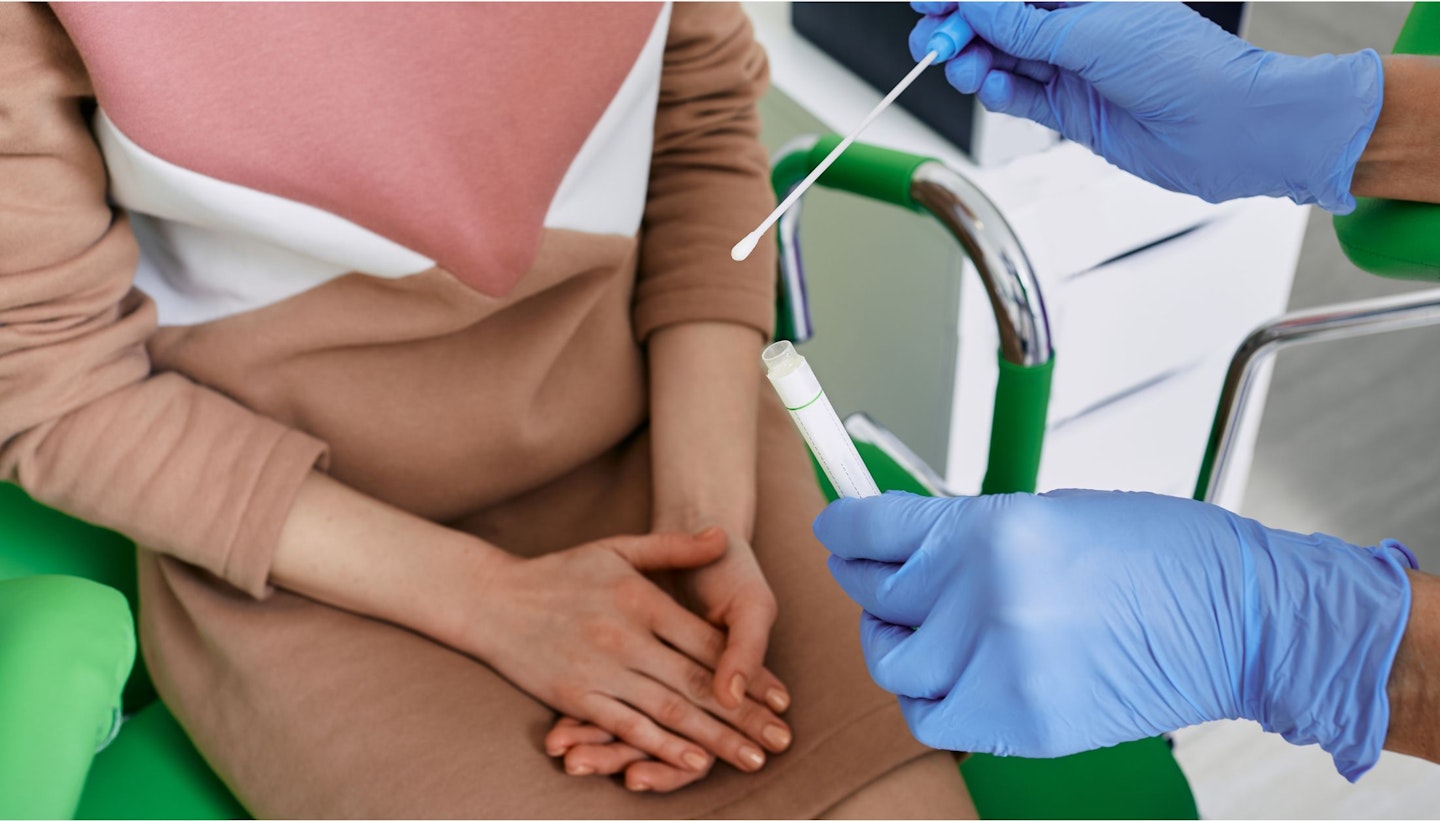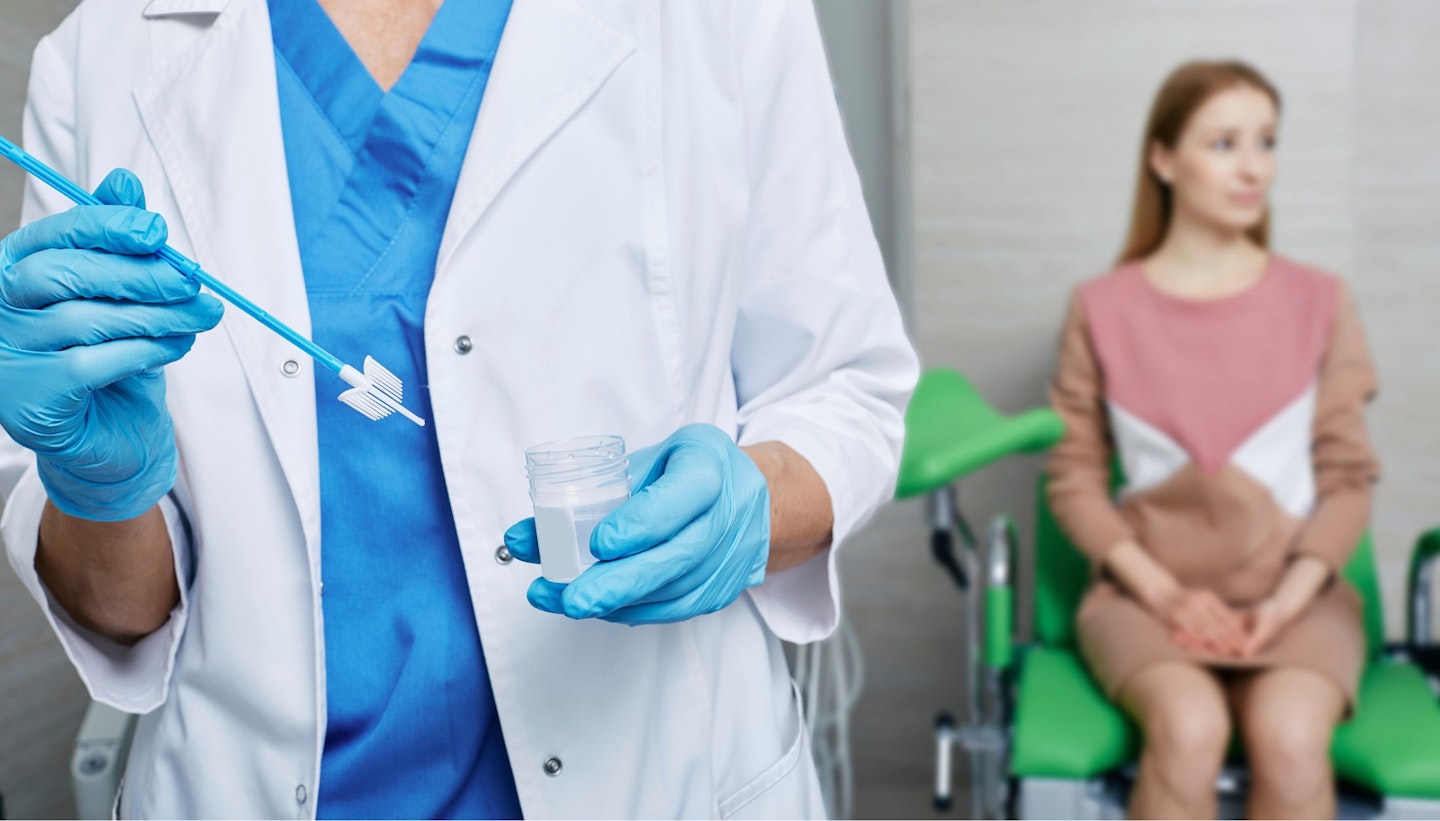As a mum, your days are often a whirlwind of tasks, and it’s easy to let your own health slip to the bottom of the list. The thought of getting a smear test (or cervical cancer screening) might be one of those things you’d rather avoid—whether it’s because it feels uncomfortable, a bit embarrassing, or just one more thing to squeeze into your already packed schedule.
But here’s the thing: looking after yourself is just as important as looking after your family, and regular cervical cancer screening should be a part of your self-care. This five-minute procedure could save your life.
Let's answer the main question: What is a smear test? And explore why it's so important for mums to have theirs...
Did you know one in four women miss their smear tests?
Every year, smear tests save the lives of around 5,000 women in the UK by detecting cervical cancer early, when it’s most treatable. Yet despite this, over a million women across the country are missing these life-saving screenings, putting themselves at risk. With 3,200 women diagnosed with cervical cancer annually and more than 800 losing their battle, the importance of regular cervical cancer screening cannot be overstated.
If you’re one of the many women who feel hesitant about getting a smear test, you’re not alone. In fact, one in four women skips their screenings, with the numbers even higher among younger women. Recent figures suggest as many as five million women in the UK aren't up to date with cervical screening. But this quick, simple procedure could make all the difference in ensuring you’re around for your loved ones for years to come.

But, firstly, what is a smear test and how is it done?
Dr Vikram Murthy, General Practitioner (GP) and co-founder of Harley Street Clinic with extensive experience in women's health, explains, “A smear test, also known as a cervical screening, is a simple procedure where cells from your cervix are collected and examined for any abnormalities that could indicate cervical cancer. The test is quick, usually taking only a few minutes, and is crucial for detecting potential issues before they become serious."
He adds, “Smear tests involve a trained health professional using a speculum—a smooth, tube-shaped tool with a little lubrication that is inserted into the vagina. The speculum is then opened, and once the cervix is visualised, a small brush is used to collect cells from the cervix to be sent off for testing. There’s no special preparation needed, and if you feel intimidated, you can bring a chaperone for support or request a female clinician if you prefer.”
Dos and don’ts before a smear test
Dos:
• Contact your GP or local clinic to schedule your smear test.
• Inform your GP if you’re pregnant or have any other health concerns.
• Wear comfortable clothing; this will make the process easier.
• Relax and try to stay calm to make the procedure as smooth as possible.
Don’ts:
• Don’t schedule the test during your period if you can avoid it.
• Avoid douching or using any vaginal creams or gels for 24 hours before the test, as these can affect the results.
• Don’t stress too much. The test is quick and usually not painful.
Skip the smear test when you’re pregnant
If you’re pregnant or could be, you might want to postpone your smear test for now. Louise Broadbridge, known as The Honest Midwife, and founder of Let's Talk Birth and Baby, says, “You will not usually be invited for a smear test if you are pregnant or could be pregnant for at least 12 weeks following the arrival of your baby.
This is because the nature of your pregnancy can make it difficult to get clear results. However, if your screening invite is part of a follow-up from prior to becoming pregnant, you should still attend this. Just let your caregiver know about your pregnancy.”

Reasons why some people put off having a smear test
There are countless reasons mums might put off their smear test—from body image worries to misunderstandings about what the test involves. Louise says, “There are several reasons why people might not attend their smear test (Pap smear or cervical screening). These reasons often involve a mix of psychological, cultural, and informational factors. Additionally, misconceptions about the test itself contribute significantly to this hesitance.”
“Any procedure or examination that is of a personal nature is going to bring about a little apprehension,” Louise adds. “No one looks forward to having a smear test! However, this can extend to actual fear and anxiety. Worrying that the procedure will be painful or uncomfortable, and fear of the results, often causes delays in booking, which is actually a very quick and simple process. Cultural taboos around sexual health can also make these appointments daunting. Additionally, logistical barriers such as lack of transport or appointment availability may also play a role.”
Common misconceptions and understanding the importance of your smear test
Louise explains, “Many people believe that you only need a test if you are sexually active. This is not true! Cervical screening detects abnormal cells or changes that can develop over time, so sexual activity should not be a consideration in whether you go for the test.
Some might think they are too old or too young for a smear test. In the UK, you’ll be invited for a smear test up to six months before your 25th birthday and at certain intervals until you’re 65. Cervical cancer usually doesn’t present with symptoms in the early stages, which is why regular screening is crucial. Even if you’ve had the HPV vaccine, it doesn’t eliminate the need for screening, as it reduces but does not completely remove the risk.”
How does HPV relate to cervical cancer and smear tests?
Dr Vikram explains, “Almost all cases of cervical cancer are related to infection by high-risk types of Human Papillomavirus. The HPV vaccine, offered to girls aged 12 and 13, protects against cancers caused by HPV and genital warts.
While the vaccine significantly reduces the likelihood of cervical cancer, it doesn’t completely eliminate the risk, so cervical screening remains essential. Regular screening is recommended for women aged 25 to 64, regardless of vaccination status.”
Advice on the HPV vaccine for your children
If you have children, it is best to have them vaccinated. According to experts at NI Direct, the vaccine will prevent up to 90% of cervical cancer cases. The HPV (human papillomavirus) vaccine is offered to girls and boys aged 12 to 13 years to help protect them against HPV-related cancers.
“The HPV vaccine is a very effective way to reduce the risk of HPV-related cancers and genital warts,” says Dr Vikram. “It’s safe and provides significant protection. If you have further questions, consult your doctor for personalised advice.”

Smear Test FAQs
At what age do you have a smear test?
In the UK, you will be invited for your first smear test around the age of 25. Screenings are then carried out every three years until you turn 49, after which they occur every five years until you reach the age of 64. This schedule helps ensure that any abnormalities are detected early.
Can you have a smear test during your period?
According to the NHS, it’s best to avoid having a smear test during your period if possible, as menstrual blood can interfere with the results. The NHS recommends trying to avoid the two days before or after you bleed (if you do not have periods, you can book any time).
Can I have sex before and after a smear test?
Yes, you can have sex before and after a smear test. However, if you experience any discomfort or bleeding after the test, let your healthcare provider know.
Does a cervical smear hurt?
Most women report that a smear test feels slightly uncomfortable but is not painful. If you feel any significant discomfort or pain, let your healthcare provider know, as there may be ways to make the procedure more comfortable for you.
Do bad smear results come back quicker?
Yes, abnormal smear test results often come back quicker than normal results. This is because labs prioritise processing and notifying individuals when follow-up testing or treatment may be needed. However, the exact timeline can vary depending on the healthcare provider and system. If you’re concerned about your results, it’s always a good idea to follow up with your doctor.
How often do you have a smear test?
The frequency of smear tests depends on your age and location. In many countries, women are advised to have a smear test every 3 to 5 years starting from age 25 to 65. However, this can vary based on individual health factors or previous test results, so it’s best to follow your doctor’s recommendations.
About the experts
Louise Broadbridge, known as The Honest Midwife and founder of Let's Talk Birth and Baby, is a prominent UK midwife with over 30 years in healthcare. Her extensive experience spans both hospital and community settings, offering a deep understanding of labour, birth, and postnatal care. Louise’s interactive classes have supported over 120,000 attendees in the past four years, particularly expanding during the pandemic.
Dr Vikram Murthy is a highly experienced General Practitioner (GP) and co-founder of Harley Street Clinic. He covers all aspects of health including women’s health. As a GP, Dr. Murthy is dedicated to providing holistic care, addressing everything from routine health checks to specialised women’s health issues, including cervical screenings and reproductive health. With over 9 years of experience in both the private and public health sectors, Dr. Murthy is committed to fostering long-term relationships with his patients, guiding them through their health journeys with compassion and expertise.
About the author
Anne Lora Scagliusi is a Senior Digital Writer at Mother & Baby. She is a Scotland-based journalist with over a decade of international writing experience, specialising in women’s health, maternal mental health, and wellness. Her work has been featured in Vanity Fair, Marie Claire, and Glamour and has appeared on several Vogue global editions. She is mum to a one-year-old bambino and lives between Italy and the UK.
